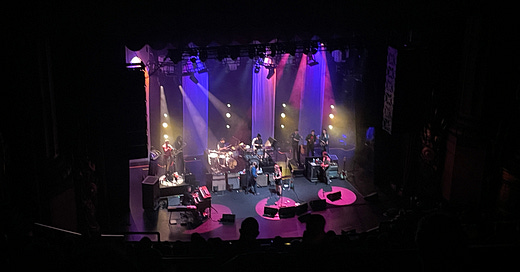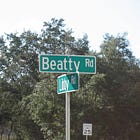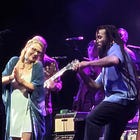This past week, I had a chance to explore the crossroads of Southern music, history, and culture from what on the surface seems like an unlikely place: New York City.
This post is brought to you by Take the A Train, a playlist of songs about New York City I listen to on each visit.1 New York City is an adult dose2 and this trip spanned 5 nights, six days. I arrived home weary and inspired. Tedeschi Trucks Band, being surrounded by music people and the energy of NYC will do that for a fella.
New York and the Allman Brothers Band
As a student and scholar of local history, the intersection of place and history fascinates me. I’ve thought, talked3, and written4 a lot about it over the years.
And while the Allman Brothers Band and the South are inextricably linked, New York City is where the band really broke in the marketplace. They weren’t headliners March 11-13, the weekend they recorded At Fillmore East.5
By June, Bill Graham chose them as the venue’s closing act.
That they had yet to release At Fillmore East tells you how highly Graham respected the Allman Brothers Band.
Beginning in 1989 and continuing until 20146, the Allman Brothers Band played an annual residency in New York City. The vast majority of those years at the Beacon Theatre at Broadway and 74th Ave.
The Tedeschi Trucks Band has continued that tradition.
TTBeacon shows gave me the opportunity to explore one of my favorite places in the world: Manhattan.
NYC has long been a center of American entertainment and culture. I used the city as the backdrop for me to practice producing video content as I explored Southern music, history, and culture in one of the world’s truly great cities.
I posted videos in real-time on social media7 and put together a video of the clips here including stops at Tin Pan Alley, the Brill Building, site of Atlantic Studios (gone), Fillmore East (gone), the Bitter End, and reflections on TTB.
TTBeacon 2024
I caught 3 TTBeacon shows—Thursday, 2/29; Friday 3/1; Saturday 3/2. My love of the Tedeschi Trucks Band is an open secret8 and suffice it to say, I felt the same way each night as I did recording this NSFW video Friday, March 1, the morning after the first show.
Later that day, I joined Alan Paul on Adam Choit’s Tedeschi Trucks Band podcast in a wide-ranging discussion about all things TTB and Allman Brothers. There are few people I enjoy talking this shit with more than
and Adam.9Here’s that “It Ain’t Fair” from Thursday night. Don’t miss Alecia’s curtsy at the end. She earned that one. One of the most powerful performances I’ve ever seen in person. ABBsolutely outstanding.10
I was so awestruck and in the moment that I missed Derek quoting “Dreams.”
pointed it out to me.11 I heard it on my first relisten.Two nights later, they segued from “It Ain’t Fair” into “Dreams”—as if the songs belonged together all along. And in some ways they do…both were recorded in 1969 at Atlantic Studios, 1841 Broadway. Two gorgeous waltz-time songs that Duane Allman and Derek Trucks ABBsolutely nail.
I have more, lots more, to process about yet another incredible weekend in the City that Never Sleeps. It’ll surface in my writing or maybe on video, we’ll see.
Langiappe
Blue Arrow Pete sent this from Circus, March 1973.
I’ve not researched this at all but I’m not sure Berry’s death had anything to do with changing the title. Compared to Brothers and Sisters, Lightnin’ Rod is pretty lame.
The Allman Brothers Band have decided not to call their next album Lightnin' Rod—for reasons that are nothing less than tragic. Death's dark lightning struck the band for the first time with Duane's death a little over a year ago. Then, just as the band was flying triumphantly in the face of adversity with a new LP half finished, a new member—Chuck Leavell—joining as pianist, its first television appearance under its belt, and plans for a half dozen dates with the Grateful Dead, the ominous signs began to appear that lightning was about to strike again.
One Thursday afternoon an Allman roadie had stopped his cycle for a light when a car rammed him from behind; a second roadie was out riding when a hunter's bullet crumpled his horse out from under him; and a third smashed his collar bone. But the real tragedy did not hit until two days later, when bassist Berry Oakley. was riding his cycle up Macon, Georgia's Napier Avenue a mere three blocks from the site of Duane's fatal motorcycle crack-up and suddenly found himself on a collision course with a truck. Berry swerved, but it was too late. When he picked himself up and got back on his cycle, he thought the worst consequence of the accident was his cracked helmet. But later that night, Berry began to undergo convulsions. His frantic friends drove him to the Central Georgia hospital to be checked out. An hour later, he was dead.
In less than a month, the Allmans had begun to recover in the only way they knew by playing music. They replaced Berry with drummer Jai Johanny Johanson's friend Lamar Williams. They went back out on the road again, and began to replan their dates with the Dead. And they went back to work on their new LP. But they did not go back to the LP’s original title of Lightnin’ Rod. It had begun to look too much like a bad joke.
Odds & Sods
In the “here’s something interesting” department12
1971 cover of “Midnight Rider” by psychedelic Japanese band the Golden Cups, courtesy of John P.13
As a founding member of the Enlightened Rogues Appreciation Society14, I love this piece:
“45 Years Later: The Allman Brothers End Capricorn Records Run With Overlooked Enlightened Rogues.”
Guitarist Robert Lee Coleman is a treasure, as this feature reveals:
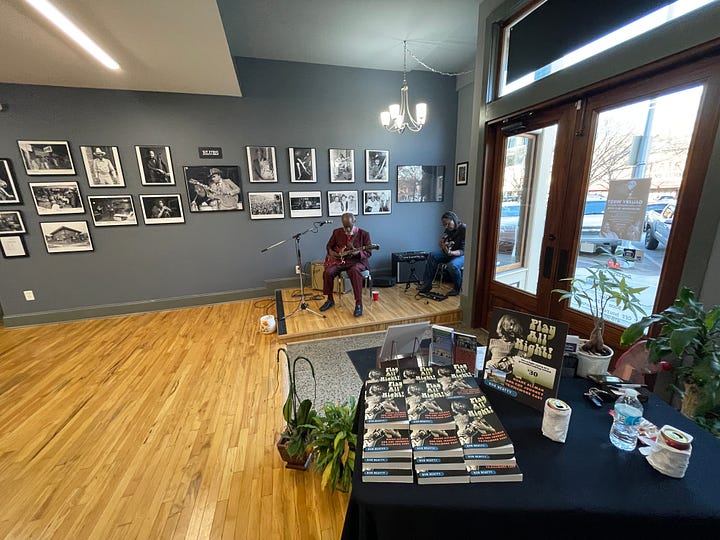
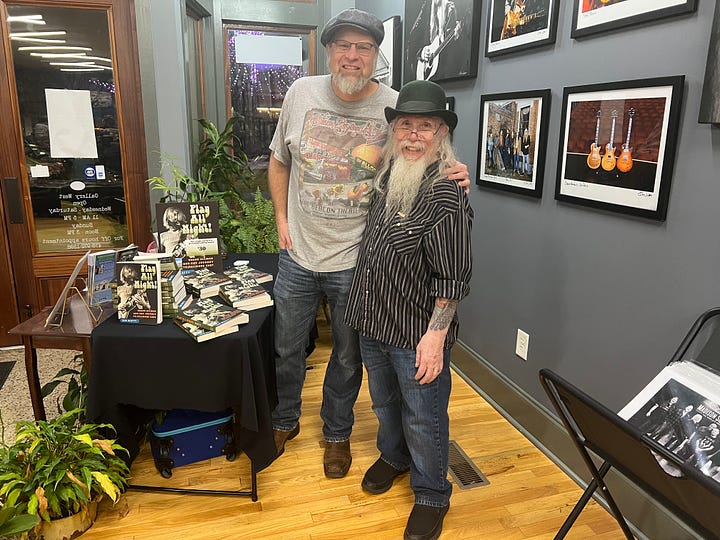
Until next time.
Take the A Train Spotify playlist.
Levon Helm. Ya tu sabes.
"Musicians and a Sense of Place," from April 2023.
This is from my last book, An AASLH Guide to Making Public History (2018)
That was Johnny Winter. See “March 1971 Fillmore East bill.”
With one year off while Gregg recovered from a liver transplant.
Here’s one example of what I mean:
I think this is my 3rd time on Adam’s *excellent* podcast.
Just making sure you watched it. Trust me, I’m a doctor.
This is a testament to the power of that song. I never miss this stuff, y’all. Ask around. As Troy says, “Bob may only have one ear that works, but it’s a *great* ear.”
Shout-out to my late pops, R. Patrick Beatty!
My dude Andy B. summed it up perfectly, “The most interesting thing about this is that a Japanese band was covering the ABB as early as 1971.”
Here’s me riffing on Enlightened Rogues recently.

